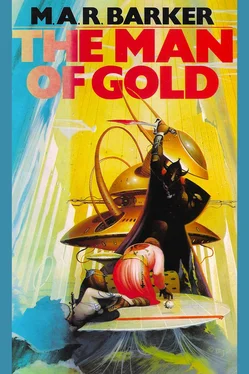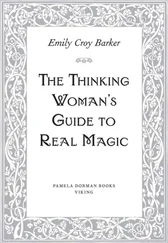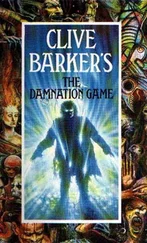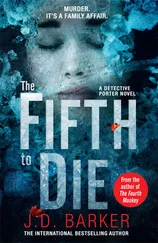M. Barker - The Man of Gold
Здесь есть возможность читать онлайн «M. Barker - The Man of Gold» весь текст электронной книги совершенно бесплатно (целиком полную версию без сокращений). В некоторых случаях можно слушать аудио, скачать через торрент в формате fb2 и присутствует краткое содержание. Жанр: Фэнтези, на английском языке. Описание произведения, (предисловие) а так же отзывы посетителей доступны на портале библиотеки ЛибКат.
- Название:The Man of Gold
- Автор:
- Жанр:
- Год:неизвестен
- ISBN:нет данных
- Рейтинг книги:3 / 5. Голосов: 1
-
Избранное:Добавить в избранное
- Отзывы:
-
Ваша оценка:
- 60
- 1
- 2
- 3
- 4
- 5
The Man of Gold: краткое содержание, описание и аннотация
Предлагаем к чтению аннотацию, описание, краткое содержание или предисловие (зависит от того, что написал сам автор книги «The Man of Gold»). Если вы не нашли необходимую информацию о книге — напишите в комментариях, мы постараемся отыскать её.
The Man of Gold — читать онлайн бесплатно полную книгу (весь текст) целиком
Ниже представлен текст книги, разбитый по страницам. Система сохранения места последней прочитанной страницы, позволяет с удобством читать онлайн бесплатно книгу «The Man of Gold», без необходимости каждый раз заново искать на чём Вы остановились. Поставьте закладку, и сможете в любой момент перейти на страницу, на которой закончили чтение.
Интервал:
Закладка:
Qumal, the Prior’s flat-faced, unsmiling body-servant, admitted Harsan to the empty anteroom, led him past the dining chamber, where three children were stacking up the many little golden bowls of the evening’s repast (and surreptitiously stuffing their cheeks with left-overs), and opened the bronze-studded door into Haringgashte’s audience hall.
This chamber was furnished in the simple style preferred by the austere temple of Thumis: grey-washed walls covered with painted devotional texts in black and red, coloured vignettes of the god, a tessellated marble floor overspread with a single carpet of cloud-grey Mnor- fur, several ascending daises, each with its low table set upon legs carven in the shapes of comical Kuruku- beasts, and a larger table in one corner heaped with scrolls, books, inkpots, jars of pigments, and vessels of unknown contents. A single branching candelabrum held twelve tiny oil — lamps. High up beneath the beamed ceiling four small clerestory windows admitted the cool evening breeze that blew nightly down off the Inner Range.
Prior Haringgashte sat alone upon the highest dais at the far end of the room. As with many from his native city of Tumissa, his physique had developed like that of the Choqun- plant: reed-slender in his youth, in his latter years he had become almost bottle-shaped. His small and delicate head joined his sloping chest with little pause for shoulders, and his rotund pot-belly overhung his rounded, almost feminine hips in testimony to his love of sedentary habits — and of good food. The grey vestments of Thumis did little to conceal his girth, nor did the black skullcap of the priesthood hide his bald and mottled scalp. He watched Harsan's approach with a steady and not overly baleful gaze, from which the latter derived some faint comfort. His first words took Harsan by surprise.
“It is related, priest Harsan, that you have been anointed a Scholar Priest of the Second Circle. What was the Labour of Reverence that brought you to this exalted status?”
“My-my Prior, it was a study of the language of the ancient Empire of Llyan of Tsamra…”
“Would you then become a grammarian?”
“Languages come as easily to me, Sire, as swimming to a fish. I know not why. Yet I would also study history, doctrines, and other-’ ’
The Prior put forth a soft hand, palm down, two fingers extended, to show that he wished to continue. “How go your studies of Llyani?”
The younger priest swallowed, started to speak, and tried again. “My Lord, as is known to you, the Empire of Llyan perished some twenty-five thousand years ago — nay, more, if the Livyani scholars are correct. We lack material-I have studied rubbings of the one hundred and fifty-eight stone inscriptions in LIyani, and I have had access to five of the seventeen most authentic books in the language. Yet this is so little. As my Lord knows, the centre of Llyan's empire lay not within our own land of Tsolyanu but rather in the plains between Mu’ugalavya and Livyanu to the southwest. All that we have are the later records of the Three States of the Triangle, some works of the Time of the Dragon Lords…” He trailed off, cursing himself for a babbler, well aware that the Prior knew all that he was telling him. But what did the man want?
Prior Haringgashte pulled himself to his feet and extracted a worn leathern case of map-symbols from the litter of documents on his work table.
From this he took out a small pyramid of blue lapis lazuli. Tiny knobs and loops of gold had been affixed here and there upon its surface, and flecks of other minerals glinted from within. This, Harsan knew, symbolised the Empire of Tsolyanu, and each protuberance, curve, subtle shading, and texture told its tale of cities, roads and distances, populations, products, villages and towns, and other data, readable only by those skilled in High Cartography. Next emerged an oblong of sand-yellow jasper: the desert lands of Milumanaya to the north of Tsolyanu. Beyond this he set out a faceted rhomboid of smooth green serpentine; this stood for the hostile lands of Baron Ald of Yan Kor. Above this a tablet of wavy blue slate was placed to indicate the crag-coasted northern sea, each serration, curve, and change of texture marking a harbour, a cove, an island, a distant settlement-even reefs and tides. Three smaller polyhedrons of carnelian, agate, and red porphyry were arranged to the left of this to represent the little northern states of Pijena, Ghaton, and N'luss. The Prior then brought forth a cloudy wine-red dodecahedron of bloodstone which stood for the sprawling empire of Mu’ugalavya, Tsolyanu’s sometimes hostile western neighbour beyond the Chaka Range. Below this he added a curiously twisted moon-shaped symbol of rippling fire opal: the far-off land of Livyanu. A final plaque of wavy slate to the right of the symbol for Livyanu and beneath that of Tsolyanu signified the southern ocean, the Deeps of Chanayaga. The rest of the symbols he left in the case.
“Can you read these, then, priest Harsan?”
“Only the rudiments, my Lord. I am more comfortable with the maps drawn upon paper by merchants-not with these of the High Cartography. ’ ’
The Prior’s lips sketched a thin smile. “These tell much more. To see, to touch, to feel-so much more than flat lines upon a page. Come, show me where the Empire of Llyan of Tsamra once lay.”
Wondering, Harsan put forth a tentative finger and touched the empty space between the symbols for Mu’ugalavya and Livyanu. “Here, my Lord.”
The Prior reached into the welter of materials on the table, picked up a small casket of dun-red metal, and extracted another map symbol. With the air of a mother setting a morsel of sugary Dmi-root before a child, he laid this in the space marked by Harsan’s finger.
“This was found in a tomb of the Bednalljan Dynasty near our city of Urmish. The casket is Fulat — steel-alas, now one of the rarest metals on Tekumel and one of the most costly therefore. Go ahead, examine it.”
Slowly the younger man stretched forth his hand to caress the faceted crystal. The symbol was translucent, as deeply green as the Chakan forests; it resembled beryl, yet it was softer and somehow warm to the touch. Within it tiny motes of living gold and ruby-red and jet-black swam lazily like little fishes. Harsan’s fingers seemed to travel of themselves from knobbly protuberance to tiny gold boss to miniature intaglio. As he did so, he realised that he was hearing snatches of speech at the very outer limits of his hearing: diminutive pygmy voices talking, lecturing, reciting, shouting, declaiming, singing-all in a language he could not make out and so faint as to seem but the echo of his own blood beating within his temples.
He snatched his hand away.
“It is a thing of the old ones, priest Harsan.” The Prior reached out to take the symbol. “Once when I travelled with our late High Priest, Huketlayu hiTankolel (-may Thumis commend him to the gate-guards of Belkhanu’s paradise! — ) to the Imperial citadel at Avanthar, I saw others of these things in the cabinets of Lord Qoruma, the High Princeps of the Omnipotent Azure Legion. Most of these map symbols are still and cold, like the poor copies made now by our artisans, but he had one or two which glowed like this and seemed to speak as this one does, though no one living knows the magic needed to bring the voices of these ghosts clearly to us.” Prior Haringgashte turned the map symbol over. “Look here, priest Harsan.”
Harsan peered and then suddenly bent closer. The crisply incised characters on the symbol’s base were the convoluted whorls and ornate floral arabesques of the artists of Llyan’s empire, and in the midst of these were the squarish, squat characters of the LIyani syllabary. In an awed voice he read:
Читать дальшеИнтервал:
Закладка:
Похожие книги на «The Man of Gold»
Представляем Вашему вниманию похожие книги на «The Man of Gold» списком для выбора. Мы отобрали схожую по названию и смыслу литературу в надежде предоставить читателям больше вариантов отыскать новые, интересные, ещё непрочитанные произведения.
Обсуждение, отзывы о книге «The Man of Gold» и просто собственные мнения читателей. Оставьте ваши комментарии, напишите, что Вы думаете о произведении, его смысле или главных героях. Укажите что конкретно понравилось, а что нет, и почему Вы так считаете.











